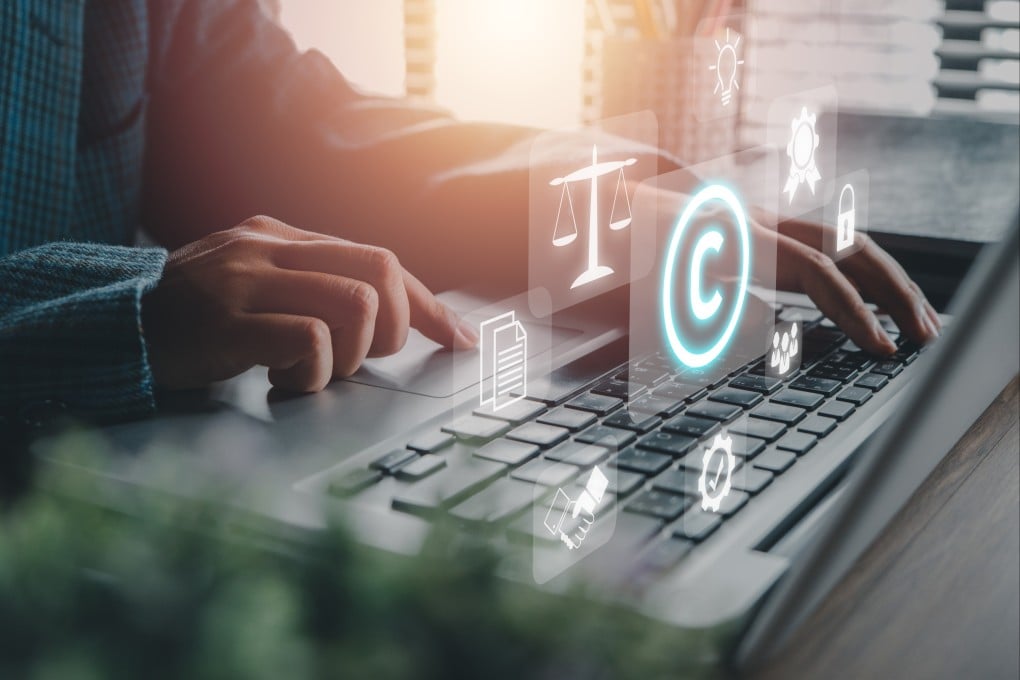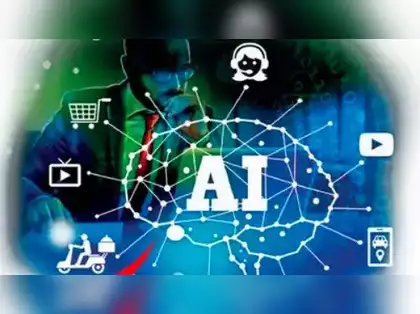Have you ever marveled at a stunning image created by artificial intelligence and wondered, “Who truly owns this masterpiece?” As AI technology continues to evolve, it’s generating artwork that rivals human creativity.
But here’s the catch: the world of copyright law is a maze, and when it comes to AI-generated images, the path is even murkier. You might be asking yourself, “Can these digital wonders be protected by copyright? ” This question doesn’t just concern artists or tech enthusiasts—it’s a matter that impacts you, especially if you’re a creator, a consumer, or someone who values innovation.
Dive into this intriguing topic and uncover the surprising truths that could reshape how you perceive ownership and creativity in the digital age. Keep reading, because what you discover might just change how you think about art and technology forever.

Credit: copyrightalliance.org
Ai And Copyright Basics
Artificial Intelligence is changing how we create images. This raises questions about copyright protection for these AI-generated works. Understanding the basics of AI and copyright is essential for creators and users alike.
Understanding Copyright Laws
Copyright laws protect original works of authorship. These include books, music, and images. They grant exclusive rights to the creator. To qualify for copyright, a work must be original and fixed in a tangible form.
Traditionally, copyright applies to human-created works. AI complicates this by generating images without direct human input. Legal experts debate if AI-generated images can be copyrighted. The law is evolving to address these new challenges.
How Ai Generates Images
AI uses algorithms to create images. It analyzes vast amounts of data to learn patterns. Then, it uses this information to generate new visuals. AI can mimic styles and create unique designs.
Generative Adversarial Networks (GANs) are popular for image creation. GANs consist of two neural networks. One generates images, while the other evaluates them. This process refines the output until it meets certain standards.
AI-generated images often blend existing elements. This raises questions about originality. Understanding how AI works helps determine if its creations can be protected by copyright.

Credit: www.scmp.com
Legal Challenges
Legal challenges arise as AI-generated images become more common. The question of copyright protection for these creations is complex. Traditional copyright laws are built around human creativity. But AI changes the game. It raises questions about who owns the rights to these works. This is an evolving legal area with no clear answers yet.
Ownership Of Ai Generated Works
Ownership is a primary concern. Who owns an image created by AI? Is it the programmer? The user? Or the machine itself? These questions challenge existing copyright rules. Traditionally, the creator holds the rights. But AI complicates this notion. AI acts independently once programmed. This makes ownership attribution difficult.
Human Vs. Machine Authorship
Authorship is another complex issue. Copyright assumes a human creator. AI-generated works lack direct human input. Can a machine be an author? This challenges the essence of copyright laws. AI follows algorithms, not human creativity. This raises debates about authorship. Can a non-human entity create something protectable? Current laws say no. But technology keeps evolving.
Case Studies
Copyright protection for AI-generated images is a hot topic today. Legal experts and artists are exploring this area. Case studies provide insights into how courts view AI art. They highlight challenges and set precedents for future disputes.
Notable Legal Precedents
One landmark case involved a monkey taking a selfie. The court ruled that animals cannot hold copyrights. This case impacts AI-generated content, questioning who holds the rights. Another case concerned AI-generated music. The courts decided human creators could claim rights, not the AI.
These rulings influence how AI-generated images are viewed legally. They shape the understanding of authorship and ownership. Each case adds a piece to the complex legal puzzle.
Recent Copyright Disputes
Recent disputes involve artists and tech companies. Artists claim AI tools use their work without permission. Tech companies argue that AI generates unique creations. These disputes often end in settlements or ongoing legal battles.
Another dispute involved a social media platform using AI art. The artist claimed copyright infringement. The case highlighted the tension between innovation and creator rights. These disputes continue to shape the legal landscape for AI-generated art.
Implications For Creators
The rise of AI-generated images brings new challenges for creators. Understanding copyright implications is crucial. Creators need to know how this technology affects their work. Let’s explore the impact on artists and designers, and how they can navigate copyright claims.
Impact On Artists And Designers
AI-generated images affect artists and designers in various ways. Some feel threatened by automated creativity. Others see opportunities for collaboration with technology. The art world is changing. Traditional skills might need adaptation. Artists must redefine their role in this new landscape. AI can assist in generating ideas. It can provide fresh perspectives. Yet, human touch remains unique. That uniqueness is still valuable and needed.
Navigating Copyright Claims
Copyright laws struggle to keep pace with AI innovations. Who owns an AI-generated image? This question often arises. Current laws are not always clear. Creators must stay informed. They need to understand their rights. Protecting one’s work is important. Seeking legal advice may be helpful. Creators should document their creative process. This can help in potential disputes. A clear record can support copyright claims.
Future Of Copyright In Ai
The future of copyright in AI-generated images is a hot topic right now. As artificial intelligence becomes more sophisticated, it churns out art and visuals that rival human creativity. But who owns these creations? This question is stirring debates around the world, pushing us to rethink copyright laws.
Potential Legal Reforms
Legal systems are beginning to grapple with the complexities of AI-generated content. Lawmakers are considering updates that could redefine copyright ownership. This means current copyright laws might soon evolve to include AI creations.
Could AI itself be recognized as an author? Or will the programmers or users of AI claim ownership? These questions are shaping discussions on possible legal reforms. You might soon see new policies that address these dilemmas head-on.
Role Of Ai In Creative Industries
AI is already making waves in creative industries, from fashion to film. It’s generating designs, writing scripts, and even composing music. This tech is becoming a collaborator, not just a tool.
Imagine using AI to spark new ideas or enhance your creative process. It’s not just about replacing human creativity but expanding it. How will this impact the way you perceive art and originality?
As AI continues to evolve, its role in creative industries will only grow. You might want to keep an eye on how copyright laws adapt to this new frontier.

Credit: m.economictimes.com
Frequently Asked Questions
Can Ai Images Be Copyrighted?
AI-generated images are complex in copyright law. In many jurisdictions, they aren’t eligible for copyright. Human creativity is required for copyright protection. Always check local laws and consult legal experts for specific situations. Rights may vary based on jurisdiction and AI involvement. As the use of AI-generated images grows, so do the ai generated images safety concerns, particularly regarding misinformation and misappropriation of artistic styles. Artists and creators may face challenges in protecting their work if it is mimicked or duplicated without consent. Vigilance in addressing these concerns is essential to foster a fair and respectful digital environment.
Are Deep Ai Images Copyright Free?
Deep AI images aren’t automatically copyright free. Copyright depends on the AI tool’s terms and applicable laws. Check the specific platform’s licensing terms to ensure compliance. Always verify usage rights before using AI-generated images for commercial purposes to avoid legal issues.
Can I Use Ai-generated Images Commercially?
Yes, you can use AI-generated images commercially. Ensure you have the right licenses and permissions. Check the terms of the AI tool used. Some platforms may have restrictions on commercial use. Always review copyright laws and guidelines to avoid legal issues. Additionally, it’s crucial to understand the specific licensing agreements associated with the AI-generated images you intend to use. When utilizing ai images for commercial purposes, ensure that you attribute the creator appropriately if required by the platform. Staying informed about any updates to the licensing terms will help you maintain compliance and avoid potential disputes. Additionally, it’s advisable to keep records of the licenses and any agreements made with the AI tool providers. As the landscape of copyright laws evolves, staying informed about changes related to aigenerated images in commercial use is essential. This proactive approach will help protect your business and ensure compliance with legal requirements.
Are Chatgpt Images Copyright Free?
Images generated by ChatGPT are not automatically copyright-free. Users should check specific usage rights and licenses. Always verify the image’s copyright status before using it commercially or publicly. Proper attribution may be required depending on the image’s source or creation platform.
Conclusion
The copyright of AI-generated images sparks much debate. Laws vary and interpretations differ. Creators and legal experts must stay informed. It’s crucial to understand rights and limitations. Protect your work by knowing the law. AI technology evolves quickly, so keep updated.
Consult legal advice if uncertain about your rights. This knowledge can guide your creative journey. Stay curious and informed. Embrace the digital future wisely.
